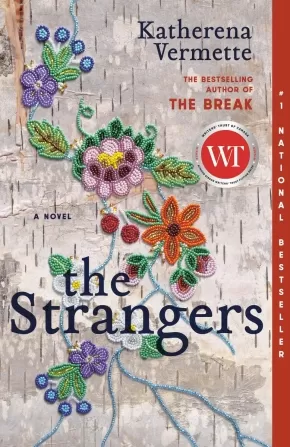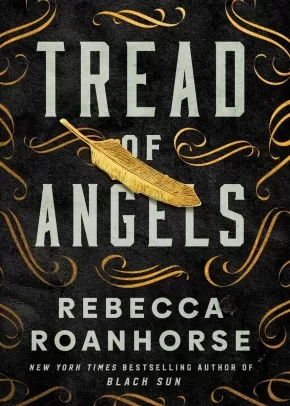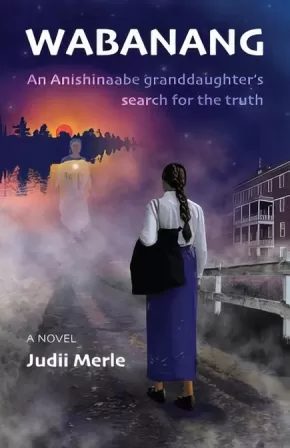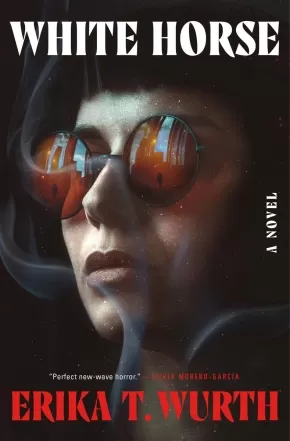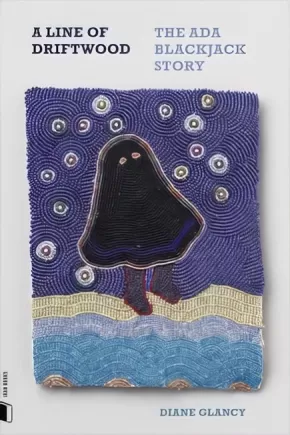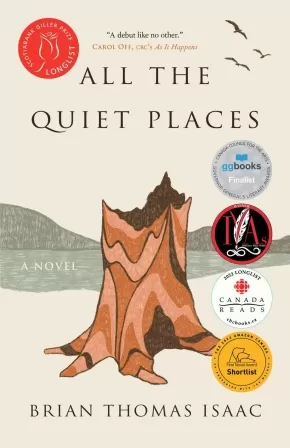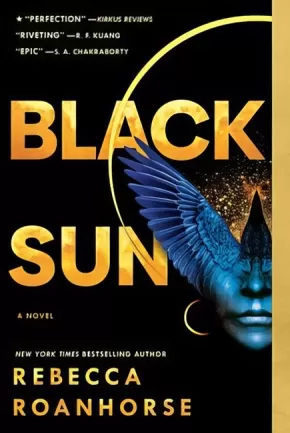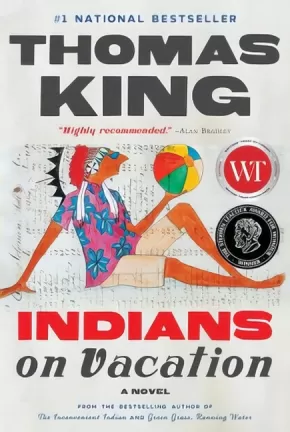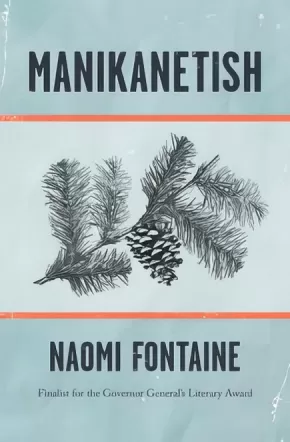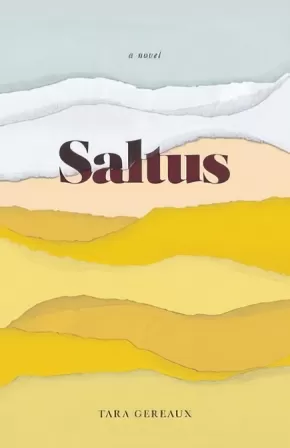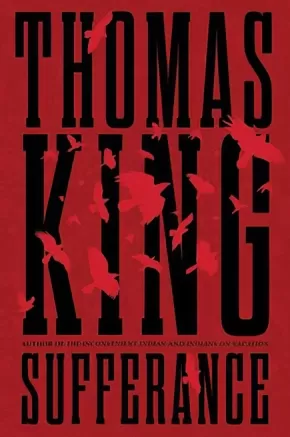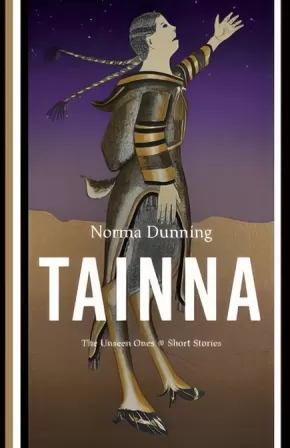Novels
Synopsis:
From the bestselling author of The Break comes a staggering intergenerational saga that explores how connected we are, even when we’re no longer together—even when we’re forced apart.
Cedar has nearly forgotten what her family looks like. Phoenix has nearly forgotten what freedom feels like. And Elsie has nearly given up hope. Nearly.
After time spent in foster homes, Cedar goes to live with her estranged father. Although she grapples with the pain of being separated from her mother, Elsie, and sister, Phoenix, she’s hoping for a new chapter in her life, only to find herself once again in a strange house surrounded by strangers. From a youth detention centre, Phoenix gives birth to a baby she’ll never get to raise and tries to forgive herself for all the harm she’s caused (while wondering if she even should). Elsie, struggling with addiction and determined to turn her life around, is buoyed by the idea of being reunited with her daughters and strives to be someone they can depend on, unlike her own distant mother. These are the Strangers, each haunted in her own way. Between flickering moments of warmth and support, the women diverge and reconnect, fighting to survive in a fractured system that pretends to offer success but expects them to fail. Facing the distinct blade of racism from those they trusted most, they urge one another to move through the darkness, all the while wondering if they’ll ever emerge safely on the other side.
A breathtaking companion to her bestselling debut The Break, Vermette’s The Strangers brings readers into the dynamic world of the Stranger family, the strength of their bond, the shared pain in their past, and the light that beckons from the horizon. This is a searing exploration of race, class, inherited trauma, and matrilineal bonds that—despite everything—refuse to be broken.
Reviews
“Katherena Vermette’s The Strangers is a deeply moving story of how colonial institutions continue to bear down on and disrupt the lives of Indigenous women and girls. It is a powerful collective portrait of struggle and resistance, of what it’s like to be in an Indigenous body in twenty-first century Canada. In the end, it adds up to an engrossingly written ode to another kind of care, one against the grain of suffering. A brilliant follow-up!”—Billy-Ray Belcourt, bestselling author of A History of My Brief Body
“The Strangers is a unique and essential triumph of a novel. It is revelatory in its artistry—in its constellating of family against violent separation, in its austere poetics of voice and consciousness. Katherena Vermette has proven once again that she is among the most gifted and relevant writers of our time: someone with everything to teach us about the telling of necessary stories, about grieving the fallen, honouring survival, and revealing the fiercest beauty.” —David Chariandy, award-winning author of Brother and I’ve Been Meaning to Tell You
Additional Information
352 pages | 5.10" x 7.90" | Paperback
Synopsis:
A poignant and evocative novel about the bonds of family and the gifts offered by the land.
When a troubled father and his estranged teenage daughter head out onto the land in search of the family trapline, they find their way back to themselves, and to each other.
Deep in the night, Matthew paces the house, unable to rest. Though his sixteen-year-old daughter, Holly, lies sleeping on the other side of the bedroom door, she is light years away from him. How can he bridge the gap between them when he can’t shake the emptiness he feels inside? Holly knows her father is drifting further from her; what she doesn’t understand is why. Could it be her fault that he seems intent on throwing everything away, including their relationship?
Following a devastating tragedy, Matthew and Holly head out onto the land in search of a long-lost cabin on the family trapline, miles from the Cree community they once called home. But each of them is searching for something more than a place. Matthew hopes to reconnect with the father he has just lost; Holly goes with him because she knows the father she is afraid of losing won’t be able to walk away.
When things go wrong during the journey, they find they have only each other to turn to for support. What happens to father and daughter on the land will test them, and eventually heal them, in ways they never thought possible.
Reviews
“Robertson shines in A Theory of Crows, a multilayered story of love, loss, healing and ultimately belonging. A family on the brink of shattering finds its way through ancient teachings of infinite connection and the roots of truth in the earth’s living memory.” — Michelle Good, author of Five Little Indians, winner of CBC Canada Reads
“In weaving together themes of identity, belonging, grief and land, The Theory of Crows is a novel that approaches rapture.” — Yann Martel, author of The High Mountains of Portugal and Life of Pi
“A brilliantly empathetic story that is both gentle and fierce.” — Thea Lim, author of An Ocean of Minutes
Additional Information
320 pages | 6.00" x 9.00" | Paperback
Synopsis:
After a hunting trip one fall, a family in the far reaches of so-called Canada’s north return to nothing but an empty space where their home once stood. Finding themselves suddenly homeless, they have no choice but to assimilate into settler-colonial society in a mining town that has encroached on their freedom.
An intergenerational coming-of-age novel, This House Is Not a Home follows Kǫ̀, a Dene man who grew up entirely on the land before being taken to residential school. When he finally returns home, he struggles to connect with his family: his younger brother whom he has never met, his mother because he has lost his language, and an absent father whose disappearance he is too afraid to question.
The third book from acclaimed Dene, Cree and Metis writer Katłįà, This House Is Not a Home is a fictional story based on true events. Visceral and embodied, heartbreaking and spirited, this book presents a clear trajectory of how settlers dispossessed Indigenous Peoples of their land — and how Indigenous communities, with dignity and resilience, continue to live and honour their culture, values, inherent knowledge systems, and Indigenous rights towards re-establishing sovereignty. Fierce and unflinching, this story is a call for land back.
Reviews
"Absolutely exquisite. Told with such love and gentle ferocity, I’m convinced This House Is Not A Home will never leave those who read it. I am in awe of what I’ve witnessed here. Mahsi cho, Katlia. Bravo! " — Richard Van Camp author of The Lesser Blessed and Moccasin Square Gardens
Additional Information
192 pages | 5.50" x 8.50" | Paperback
Synopsis:
Celeste, a card sharp with a need for justice, takes on the role of advocatus diaboli, to defend her sister Mariel, accused of murdering a Virtue, a member of the ruling class of this mining town, in a new world of dark fantasy from the New York Times bestselling author of Black Sun, Rebecca Roanhorse.
The year is 1883 and the mining town of Goetia is booming as prospectors from near and far come to mine the powerful new element Divinity from the high mountains of Colorado with the help of the pariahs of society known as the Fallen. The Fallen are the descendants of demonkind living amongst the Virtues, the winners in an ancient war, with the descendants of both sides choosing to live alongside Abaddon’s mountain in this tale of the mythological West from the bestselling mastermind Rebecca Roanhorse.
Reviews
“Rebecca Roanhorse… [is one] of the Indigenous novelists reshaping North American science fiction, horror and fantasy — genres in which Native writers have long been overlooked.” — The New York Times
“Readers are in for intricate world-building, engrossing adventure and stunning backdrops.” — The Washington Post
"The pages turn themselves. A beautifully crafted setting with complex character dynamics and layers of political intrigue? Perfection. Mark your calendars, this is the next big thing." — Kirkus, starred review
Additional Information
208 pages | 5.00" x 7.00" | Hardcover
Synopsis:
In the winter of 1876, a baby is born to Anishinaabe parents along the trapline in the northern Ontario wilderness. Seventy-five years later, her granddaughter is seeking information about her grandmother's life, why her family is so fractured, and what part the residential school played in the dysfunction and estrangement which has shaped her own life. To that end, twenty—two-year-old Janey enlists the help of a hypnotist who regresses Janey back to a time when Indigenous people in Canada lived off the land, supported each other and raised their children without outside interference. But when settlers began to arrive and residential schools were established, all that changed.
In her hypnotic state, Janey is able to follow her grandmother, Wabanang (Morning Star) as a child, as a residential school student and as a medicine woman for her people. But the seeds of distrust and fear sown along the way are destroying her family. Estranged from her mother and living with her only relative, Janey must find her own way through the smoke of confusion to discover who she is.
Although this is a work of fiction. The author has drawn on her own family's history, ceremonies and visions from her own life, stories shared with her by respected elders, as well as many years of researching her own and other families.
Additional Information
232 pages | 5.51" x 8.46" | Paperback
Synopsis:
Erika T. Wurth's White Horse is a gritty, vibrant debut novel about an Indigenous woman who must face her past when she discovers a bracelet haunted by her mother’s spirit.
Some people are haunted in more ways than one.
Kari James, Urban Native, is a fan of heavy metal, ripped jeans, Stephen King novels, and dive bars. She spends most of her time at her favorite spot in Denver, the White Horse. When her cousin Debby finds an old family bracelet that once belonged to Kari’s mother, it inadvertently calls up both her mother’s ghost and a monstrous entity, and her willful ignorance about her past is no longer sustainable…
Haunted by visions of her mother and hunted by this mysterious creature, Kari must search for what happened to her mother all those years ago. Her father, permanently disabled from a car crash, can’t help her. Her Auntie Squeaker seems to know something but isn’t eager to give it all up at once. Debby’s anxious to help, but her controlling husband keeps getting in the way. Kari’s journey toward a truth long denied by both her family and law enforcement forces her to confront her dysfunctional relationships, thoughts about a friend she lost in childhood, and her desire for the one thing she’s always wanted but could never have.
Reviews
“It’s metal to the end, it’s Denver to the core, it’s Native without trying, there’s ghosts, there’s blood, there’s roller coasters, and there’s about a thousand cigarettes smoked. What else can you ask for in a novel?” —Stephen Graham Jones, author of The Only Good Indians
"This ghost story is a perfect example of new wave horror that will also satisfy fans of classic Stephen King." —Silvia Moreno-Garcia, author of The Daughter of Doctor Moreau and Mexican Gothic
Additional Information
320 pages | 6.55" x 9.55" | Hardcover
Synopsis:
In September 1921, a young Inupiat woman named Ada Blackjack traveled to Wrangel Island, 200 miles off the Arctic Coast of Siberia, as a cook and seamstress, along with four professional explorers. The expedition did not go as planned. When a rescue ship finally broke through the ice two years later, she was the only survivor.
Diane Glancy discovered Blackjack’s diary in the Dartmouth archives and created a new narrative based on the historical record and her vision of this woman’s extraordinary life. She tells the story of a woman facing danger, loss, and unimaginable hardship, yet surviving against the odds where four “experts” could not. Beyond the expedition, the story examines Blackjack’s childhood experiences at an Indian residential school, her struggles as a mother and wife, and the faith that enabled her to survive alone on a remote island in the Arctic Sea.
Glancy’s creative telling of this heroic tale is a high mark in her award-winning hybrid investigations of suffering, identity, and Native American history.
Reviews
“This is not a reconstruction; it is symbiosis as an act of respect and dignity. As Diane Glancy 'ventriloquizes' Ada into a truth of words—written, typed, spoken, thought—she speaks the paradoxical truth of acts of writing as self-witness: 'I am hurting when I am writing.’ Isolation becomes revelation. The spiritual driftwood becomes a testament of sacred connection and a claiming back of voice.”—John Kinsella
“The shifting of ice. Written letters become elk, an orange is a moon, an owl is a blank page, and the stunning survival in this Arctic landscape redefines the question, “What is rescue?” Diane Glancy hears the spirits, the words beneath the words. She knows the language of scars as she honors the life of Ada Blackjack in this visionary telling of the moving world.”—Jan Beatty
Additional Information
128 pages | 5.50" x 8.25" | Paperback
Synopsis:
Brian Isaac's powerful debut novel All the Quiet Places is the coming-of-age story of Eddie Toma, an Indigenous (Syilx) boy, told through the young narrator's wide-eyed observations of the world around him.
It's 1956, and six-year-old Eddie Toma lives with his mother, Grace, and his little brother, Lewis, near the Salmon River on the far edge of the Okanagan Indian Reserve in the British Columbia Southern Interior. Grace, her friend Isabel, Isabel's husband Ray, and his nephew Gregory cross the border to work as summer farm labourers in Washington state. There Eddie is free to spend long days with Gregory exploring the farm: climbing a hill to watch the sunset and listening to the wind in the grass. The boys learn from Ray's funny and dark stories. But when tragedy strikes, Eddie returns home grief-stricken, confused, and lonely.
Eddie's life is governed by the decisions of the adults around him. Grace is determined to have him learn the ways of the white world by sending him to school in the small community of Falkland. On Eddie's first day of school, as he crosses the reserve boundary at the Salmon River bridge, he leaves behind his world. Grace challenges the Indian Agent and writes futile letters to Ottawa to protest the sparse resources in their community. His father returns to the family after years away only to bring chaos and instability. Isabel and Ray join them in an overcrowded house. Only in his grandmother's company does he find solace and true companionship.
In his teens, Eddie's future seems more secure—he finds a job, and his long-time crush on his white neighbour Eva is finally reciprocated. But every time things look up, circumstances beyond his control crash down around him. The cumulative effects of guilt, grief, and despair threaten everything Eddie has ever known or loved.
All the Quiet Places is the story of what can happen when every adult in a person's life has been affected by colonialism; it tells of the acute separation from culture that can occur even at home in a loved familiar landscape. Its narrative power relies on the unguarded, unsentimental witness provided by Eddie.
Awards
- 2022 Indigenous Voices Awards winner
Reviews
"What a welcome debut. Young Eddie Toma’s passage through the truly ugly parts of this world is met, like an antidote, or perhaps a compensation, by his remarkable awareness of its beauty. This is a writer who understands youth, and how to tell a story." —Gil Adamson is the winner of the Writers’ Trust Fiction Prize for Ridgerunner
"All the Quiet Places is a deftly crafted, evocative story about the trials of growing up Indigenous. Brian Thomas Isaac’s characters are complex, relatable, and overall, beautifully human." —Waubgeshig Rice is the bestselling author of Moon of the Crusted Snow
"All the Quiet Places is the kind of novel that works its way into your soul. Essentially, it's a tale of childhood, all the wonders and tragedies, that befall a young boy on an Okanagan Reserve in the middle of the last century. Familiar, yet unique, Eddie's story will captivate the reader. The best compliment I could bestow on this book is. . . I wish it was one or two chapters longer. I wanted more." —Drew Hayden Taylor is from the Curve Lake First Nation and is the author of many books including Chasing Painted Horses
"On par with the brilliance of James Welch's Winter in The Blood and Ruby Slipperjack's Little Voice, Brian Thomas Isaac has given us a startling read that'll live wire your soul and haunt you for a good long while. Pure brilliance. Wow." —Richard Van Camp is the author of The Lesser Blessed and Moccasin Square Gardens
Educator Information
Keywords: Coming of Age; Own Voices; Indigenous
Recommended in the Canadian Indigenous Books for Schools resource collection as being useful for grades 11 and 12 for English Language Arts and Social Studies.
Additional Information
288 pages | 5.50" x 8.50"
Synopsis:
A god will return
When the earth and sky converge
Under the black sun
In the holy city of Tova, the winter solstice is usually a time for celebration and renewal, but this year it coincides with a solar eclipse, a rare celestial event proscribed by the Sun Priest as an unbalancing of the world.
Meanwhile, a ship launches from a distant city bound for Tova and set to arrive on the solstice. The captain of the ship, Xiala, is a disgraced Teek whose song can calm the waters around her as easily as it can warp a man’s mind. Her ship carries one passenger. Described as harmless, the passenger, Serapio, is a young man, blind, scarred, and cloaked in destiny. As Xiala well knows, when a man is described as harmless, he usually ends up being a villain.
Crafted with unforgettable characters, Rebecca Roanhorse has created an epic adventure exploring the decadence of power amidst the weight of history and the struggle of individuals swimming against the confines of society and their broken pasts in the most original series debut of the decade.
Reviews
“Rebecca Roanhorse… [is one] of the Indigenous novelists reshaping North American science fiction, horror and fantasy — genres in which Native writers have long been overlooked.” — The New York Times
"The pages turn themselves. A beautifully crafted setting with complex character dynamics and layers of political intrigue? Perfection. Mark your calendars, this is the next big thing." — Kirkus, starred review
"A a razor-sharp examination of politics, generational trauma, and the path to redemption...Roanhorse strikes a perfect balance between powerful worldbuilding and rich thematic exploration as the protagonists struggle against their fates. Fantasy fans will be wowed." — Publishers Weekly, starred review
Educator & Series Information
This is the first book in the Between Earth and Sky Series.
Additional Information
496 pages | 6.00" x 9.00"
Synopsis:
Meet Bird and Mimi in this brilliant new novel from one of Canada’s foremost authors. Inspired by a handful of old postcards sent by Uncle Leroy nearly a hundred years earlier, Bird and Mimi attempt to trace Mimi’s long-lost uncle and the family medicine bundle he took with him to Europe.
“I’m sweaty and sticky. My ears are still popping from the descent into Vaclav Havel. My sinuses ache. My stomach is upset. My mouth is a sewer. I roll over and bury my face in a pillow. Mimi snuggles down beside me with no regard for my distress.
‘My god,’ she whispers, ‘can it get any better?’”
By turns witty, sly and poignant, this is the unforgettable tale of one couple’s holiday trip to Europe, where their wanderings through its famous capitals reveal a complicated history, both personal and political.
Reviews
“From the first page, King’s sardonic and very funny voice leads us to places we never expect to go. . . European and Indigenous history collide and there’s no one better to examine the aftermath.” — Toronto Star
“Funny and deeply sensitive…. Indians on Vacation presses sharply against the world with humour and heart – personalized demons and all.” — Quill & Quire (starred review)
"Reading Thomas King's Indians on Vacation. Great grumpy dialogue + killer one-liners! Remind me not to irritate him." – Margaret Atwood
Additional Information
296 pages | 6.00" x 9.00" | Paperback
Synopsis:
In Naomi Fontaine’s Governor General’s Literary Award finalist, a young teacher’s return to her remote Innu community transforms the lives of her students, reminding us of the importance of hope in the face of despair.
After fifteen years of exile, Yammie, a young Innu woman, has come back to her home in Uashat, on Quebec’s North Shore. She has returned to teach at the local school but finds a community stalked by despair. Yammie will do anything to help her students. When she accepts a position directing the end-of-year play, she sees an opportunity for the youth to take charge of themselves.
In writing both spare and polyphonic, Naomi Fontaine honestly portrays a year of Yammie’s teaching and of the lives of her students, dislocated, embattled, and ultimately, possibly, triumphant.
Reviews
“A story of lived experience in which serene language and sensitively drawn images come together in short chapters like a succession of small touches of paint on a canvas.” — Le Devoir
“Here is a novel of courage, of surpassing oneself, and of resilience. This is a profoundly moving, human, beautiful book.” — ICI-Radio Canada
“Naomi Fontaine leads us to discover students who are sometimes endearing and sometimes disturbing, but always does so with poetry.” — Chatelaine.
Additional Information
5.25" x 8.00" | Paperback | Translated by Luise Von Flotow
Synopsis:
In her quickly gentrifying rural lake town Jade sees recent events only her encyclopedic knowledge of horror films could have prepared her for in this latest novel from the Jordan Peele of horror literature, New York Times bestselling author Stephen Graham Jones.
“Some girls just don’t know how to die…”
Shirley Jackson meets Friday the 13th in My Heart Is a Chainsaw, written by the author of The Only Good Indians Stephen Graham Jones, called “a literary master” by National Book Award winner Tananarive Due and “one of our most talented living writers” by Tommy Orange.
Alma Katsu calls My Heart Is a Chainsaw “a homage to slasher films that also manages to defy and transcend genre.” On the surface is a story of murder in small-town America. But beneath is its beating heart: a biting critique of American colonialism, Indigenous displacement, and gentrification, and a heartbreaking portrait of a broken young girl who uses horror movies to cope with the horror of her own life.
Jade Daniels is an angry, half-Indian outcast with an abusive father, an absent mother, and an entire town that wants nothing to do with her. She lives in her own world, a world in which protection comes from an unusual source: horror movies…especially the ones where a masked killer seeks revenge on a world that wronged them. And Jade narrates the quirky history of Proofrock as if it is one of those movies. But when blood actually starts to spill into the waters of Indian Lake, she pulls us into her dizzying, encyclopedic mind of blood and masked murderers, and predicts exactly how the plot will unfold.
Yet, even as Jade drags us into her dark fever dream, a surprising and intimate portrait emerges…a portrait of the scared and traumatized little girl beneath the Jason Voorhees mask: angry, yes, but also a girl who easily cries, fiercely loves, and desperately wants a home. A girl whose feelings are too big for her body. My Heart Is a Chainsaw is her story, her homage to horror and revenge and triumph.
Series Information
This is the first book in The Indian Lake Trilogy.
Additional Information
416 pages | 5.50" x 8.37" | Paperback
Synopsis:
Evocative of Miriam Toews’ A Complicated Kindness and Diane Warren’s Cool Water, Tara Gereaux’s novel, set in small-town Saskatchewan, dissects themes of Métis identity, female identity and motherhood, aging and regret, and finally, acceptance.
Nothing ever seems to happen in the small town of Saltus. At the Harvest Gold Inn and Restaurant off Highway 53, two waitresses spend their evening shifts delivering Salisbury steak specials and slices of pie to the regulars. But everything changes when Nadine, a headstrong single mother, and her teenager, Aaron, arrive at the Gold, where Aaron—who has repeatedly been denied appropriate gender-affirming medical care from the mainstream system—undergoes a near-fatal procedure performed by an unqualified and eccentric recluse who lives on the outskirts of Saltus.
The events that transpire that evening force each townsperson to look long and hard at themselves, at their own identities, and at the traumas and experiences that have shaped them. Told from multiple perspectives, Saltus reveals the complexities inherent in accepting the identities of loved ones, and the tragic consequences that unfold if they are ignored. It is a story about relationships with others, and, even more importantly, with ourselves.
Reviews
"Calm, measured and fearless, Gereaux skillfully, and with compassion, depicts a community in the aftermath of trauma. Based on true events, this work of fiction is both haunting and human. Gereaux’s strength is in her characters—you can’t help but feel their torments as if they were your own." — Lisa Bird-Wilson, February 2021
Additional Information
304 pages | 5.50" x 8.50" | Paperback
Synopsis:
Jeremiah Camp, a.k.a. the Forecaster, can look into the heart of humanity and see the patterns that create opportunities and profits for the rich and powerful. Problem is, Camp has looked one too many times, has seen what he hadn’t expected to see and has come away from the abyss with no hope for himself or for the future.
So Jeremiah does what any intelligent, sensitive person would do. He runs away. Goes into hiding in a small town, at an old residential school on an even smaller Indian reserve, with no phone, no Internet, no television. With the windows shut, the door locked, the mailbox removed to discourage any connection with the world, he feels safe at last. Except nobody told the locals that they were to leave Jeremiah alone.
And then his past comes calling. Ash Locken, head of the Locken Group, the multinational consortium that Jeremiah has fled, arrives on his doorstep with a simple proposition. She wants our hero to formulate one more forecast, and she’s not about to take no for an answer. Before he left the Locken empire, Jeremiah had created a list of twelve names, every one a billionaire. The problem is, the people on the list are dying at an alarming and unnatural rate. And Ash Locken wants to know why.
A sly and satirical look at the fractures in modern existence, Sufferance is a bold and provocative novel about the social and political consequences of the inequality created by privilege and power—and what we might do about it.
Additional Information
320 pages | 6.00" x 9.00"
Synopsis:
Drawing on both lived experience and cultural memory, Norma Dunning brings together six powerful new short stories centred on modern-day Inuk characters in Tainna. Ranging from homeless to extravagantly wealthy, from spiritual to jaded, young to elderly, and even from alive to deceased, Dunning’s characters are united by shared feelings of alienation, displacement and loneliness resulting from their experiences in southern Canada.
In Tainna—meaning “the unseen ones” and pronounced Da‑e‑nn‑a—a fraught reunion between sisters Sila and Amak ends in an uneasy understanding. From the spirit realm, Chevy Bass watches over his imperilled grandson, Kunak. And in the title story, the broken-hearted Bunny wanders onto a golf course on a freezing night, when a flock of geese stand vigil until her body is discovered by a kind stranger.
Norma Dunning’s masterful storytelling uses humour and incisive detail to create compelling characters who discover themselves in a hostile land where prejudice, misogyny and inequity are most often found hidden in plain sight. There, they must rely on their wits, artistic talent, senses of humour and spirituality for survival; and there, too, they find solace in shining moments of reconnection with their families and communities.
Awards
- 2021 Governor General's Literary Award for English-language fiction
Additional Information
160 pages | 5.50" x 8.50"

